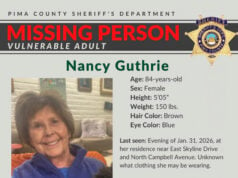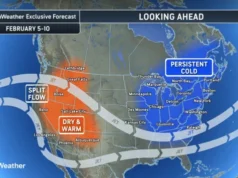
By Lawrence Hurley
A settlement that will allow thousands of student loan debts to be canceled will go into effect after the Supreme Court on Thursday declined to block it.
The Supreme Court in a brief order rejected a request made by colleges challenging the settlement.
The class-action settlement concerns loans that borrowers claim should be canceled because they were taken out based on misrepresentation made by their schools, many of which are for-profit. The settlement could be worth more than $6 billion.
The case arises from a settlement that California-based U.S. District Judge William Alsup approved in November in a case brought by borrowers. The government has already started implementing the settlement.
The application at the Supreme Court was filed by Everglades College, Lincoln Educational Services Corp. and American National University. Lincoln and American National are for-profit enterprises, while Everglades is not-for-profit. All three operate colleges the federal government placed on a list of more than 150 institutions that it said are linked with claims of “substantial misconduct.”
The colleges object to that characterization. The Justice Department says about 3,800 of the affected loans involve the three colleges and approximately 400 of them have already been discharged.
The federal Higher Education Act allows debt cancellations in specific circumstances, but the challengers say Education Secretary Miguel Cardona has exceeded his authority.
They asked the Supreme Court to put Alsup’s ruling on hold and consider hearing the case on an accelerated basis.
The Justice Department, representing Cardona, said in court papers that the settlement only involves borrowers and the Education Department. As a result, “it neither adjudicates any rights or imposes any duties or liabilities upon the relevant schools” and there is no evidence the schools have suffered any injury, the government’s lawyers argued.
Alsup refused the colleges’ request to delay his ruling from going into effect, saying their inclusion on the list of colleges did not affect their rights or have any legally binding impact on them.
The lawsuit was filed in 2019, four years after the collapse of Corinthian Colleges, a for-profit organization, which led thousands of borrowers to file claims seeking to discharge their debt.
In the separate cases involving Biden’s much larger debt relief plan, the Supreme Court in February appeared skeptical that it was lawful.
The program, which would allow eligible borrowers to cancel up to $20,000 in debt, has been blocked since the 8th U.S. Circuit Court of Appeals issued a temporary hold in October, and there are major doubts it will ever go into effect.
That plan, which would cost more than $400 billion and affect upwards of 40 million borrowers, is significantly broader than the class-action settlement.
Disclaimer
The information contained in South Florida Reporter is for general information purposes only.
The South Florida Reporter assumes no responsibility for errors or omissions in the contents of the Service.
In no event shall the South Florida Reporter be liable for any special, direct, indirect, consequential, or incidental damages or any damages whatsoever, whether in an action of contract, negligence or other tort, arising out of or in connection with the use of the Service or the contents of the Service.
The Company reserves the right to make additions, deletions, or modifications to the contents of the Service at any time without prior notice.
The Company does not warrant that the Service is free of viruses or other harmful components












